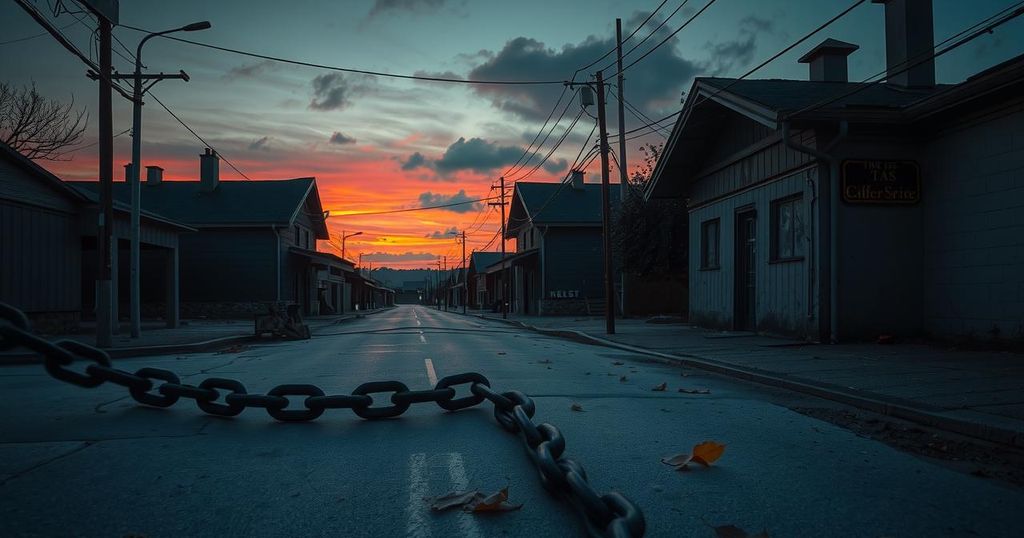World news
AFRICA, BELGIUM, CIVIL WAR, CONGO (KINSHASA), CORN, CORNEILLE NANGAA, DEMOCRACY, DEMOCRATIC REPUBLIC OF CONGO, DRC, EUROPE, FELIX TSHISEKEDI, GOMA, HUMANITARIAN, KINSHASA, KIVU, M23, MILITARY, NBC NEWS, NORTH AMERICA, RWANDA, SOUTH KIVU, TEXAS, TSHISEKEDI, U. S, UNITED NATIONS, UNITED STATES, WAR
Daniel O'Connor
0 Comments
Escalating Conflict in the DRC as Rebel Forces Advance, Threatening Stability
The Democratic Republic of Congo (DRC) is experiencing a resurgence of violence as the M23 rebel group advances from Goma, threatening to escalate a decades-old conflict. The conflict has displaced over 400,000 people recently, with dire conditions reported in Goma. As the DRC grapples with its resource wealth amidst chaos, the international community’s muted response allows rival powers to potentially gain influence in the region.
A deadly insurgency has erupted in the Democratic Republic of Congo (DRC), where the M23 rebel group is advancing southward from the eastern city of Goma, exacerbating a long-standing conflict. The United Nations has warned that the situation poses a significant risk of escalating warfare, as M23’s leader, Corneille Nangaa, aims to reach the capital, Kinshasa. In response, President Félix Tshisekedi has pledged to reclaim all lost territories, declaring a dire state in Goma with civilians facing extreme hardships due to ongoing violence.
The DRC has faced instability since gaining independence from Belgium in 1960, with the recent escalation of violence worsening for the past three years. Reports indicate that over 400,000 individuals were displaced last month alone, and clashes have resulted in casualties among U.N. peacekeepers. If M23 gains more territory in South Kivu province, it will reclaim areas lost during previous conflicts that led to millions of civilian deaths due to starvation and disease.
The global response to this violence has been limited, with Romanian mercenaries abandoning the fight and seeking refuge with U.N. peacekeepers. French officials have begun discussions with the Congolese government, while protests against perceived international inaction have erupted, including attacks against foreign embassies. The muted response from Western nations raises concerns that adversaries like China and Russia may expand their influence in the region amidst the growing chaos.
M23 emerged in 2012 amid ethnic tensions primarily between the Tutsi minority and the Hutu majority in the DRC. The group, heavily influenced by the Rwandan Tutsi population, has accused the Congolese government of failing to protect ethnic Tutsis. Previous peace agreements have produced mixed outcomes, with M23 alleging military support from Rwanda, which the Rwandan government denies.
China has a significant role in the region’s economic landscape, controlling the majority of cobalt production in the DRC, a vital mineral for technology like electric vehicle batteries. Despite the ongoing violence, experts believe the current situation poses a low threat to mineral supply chains. Nevertheless, the conflict’s fragmentation complicates the Congolese army’s ability to maintain control over these areas.
Following past M23 incursions, Rwanda faced severe international backlash that jeopardized its foreign aid. However, the latest events show a stark contrast in reactions, particularly as Rwanda has strengthened its standing through strategic ties with Western businesses and governments. While some nations have reconsidered their dealings with Rwanda, aid continues to flow seamlessly alongside M23’s continued aggression.
The Democratic Republic of Congo has been embroiled in conflict since its independence in 1960. The M23 rebel group, which surfaced in 2012, is primarily composed of ethnic Tutsi and has surfaced amidst ongoing ethnic tensions. The DRC houses vast mineral resources critical for modern technology, drawing international interest while suffering from prolonged instability and violence. As a result, regions within the DRC have seen multiple armed groups vying for control over lucrative resources, which poses challenges to the Congolese government and foreign interests alike. The international community’s response to these developments raises questions regarding accountability and intervention strategies. Rwanda’s involvement further complicates the situation, as accusations of its military backing for M23 circulate, potentially leading to broader regional implications. The global response to these conflicts, particularly regarding resource management and foreign influence, is a crucial area of concern for stakeholders internationally.
The DRC faces a humanitarian and geopolitical crisis, exacerbated by the M23 insurgency that threatens not only local stability but also international interests in critical mineral resources. The ongoing violence has forced thousands to flee, and the international community’s responses remain inadequate, raising concerns about potential foreign influence by countries like China and Russia. The dynamics of this conflict and its underlying ethnic tensions illustrate the fragility of peace in the region, necessitating urgent action and support to stabilize the DRC and protect its civilians.
Original Source: www.nbcnews.com




Post Comment